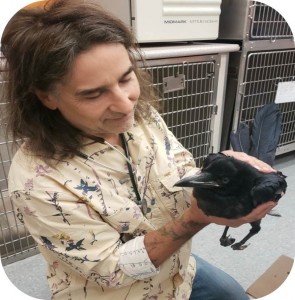In your search for a Tucson veterinary facility, we believe you should expect high quality care as well as great service. You will find both here at Rosemont Pet Clinic.

Our goal has been to assemble a veterinary health care team committed to providing exceptional client service and veterinary health care. Our commitment to you is to continue to offer our world class service and a state-of-the-art veterinary facility.
Your Visit
Your pet’s annual veterinary check-up begins with a comprehensive examination of your pet including medical history, behavior and diet. It will include a complete physical exam, with a thorough investigation of your pet’s head, body and tail, and all his assorted cavities. Our appointments are scheduled for a half hour to allow you and Dr. Restey enough time to be as thorough as possible and make sure that all issues are communicated and addressed.
Our Animal Hospital
Rosemont Pet Clinic is equipped with up-to-date technology. You will always find the clinic clean and inviting. Learn more about our Tucson Animal Hospital.
Veterinarian Dr Restey and the Rosemont Staff
With over 25 years of experience, Tucson veterinarian Dr. Mark Restey is unique in his ability to approach medical issues with both western veterinary medicine and alternative therapies such as chiropractic, acupuncture and herbal therapies. Our certified technicians have been caring for pets at Rosemont Pet Clinic for years. This consistency and their dedication is evident in our attention to clients and familiarity with individual pets and their unique requirements and care. Learn more about our staff.
Helpful Tips
Like you, your pet can lose his teeth due to decay and neglect. Because even the most cooperative pet may not readily welcome tooth and gum brushing, an annual cleaning by your veterinarian may be in order.
It’s a good idea to keep an accurate medical diary not only of the procedures and vaccinations your pet receives at the vet, but also of notes on things like your pet’s elimination habits and any physical changes or unusual occurrences. Keep track of small shifts in your pet’s behavior, including urinary marking habits and mood swings, along with diet and routine modifications. Take this notebook when you visit the vet. These seemingly unrelated occurrences may help explain results of your pet’s medical tests. Also, if you need to change vets, it’s good to have this journal to provide a complete medical history.
Choose a veterinarian who is calm, compassionate and willing to explain all the procedures your pet undergoes. Try to find a vet with whom both you and your pet feel comfortable. Look for a convenient location and choose a clinic with qualified staff and facilities to undertake surgery and perform procedures requiring anesthesia. Because of the general risks inherent to anesthesia, especially for very old, very young or very ill pets, your veterinarian will likely suggest a few exams, including a chest X-ray and lab work of blood and urine, before your pet is anesthetized. During the procedure he might need an IV drip; antibiotics may be necessary before and after.
Your veterinarian may refer you to a specialist, veterinarians who have completed advanced studies in specialties such as internal medicine, surgery, and emergency care, if your pet must undergo a procedure that requires more precise knowledge and experience.
